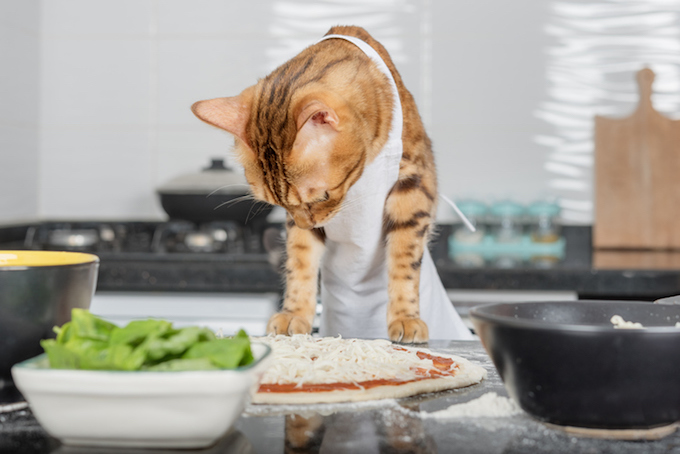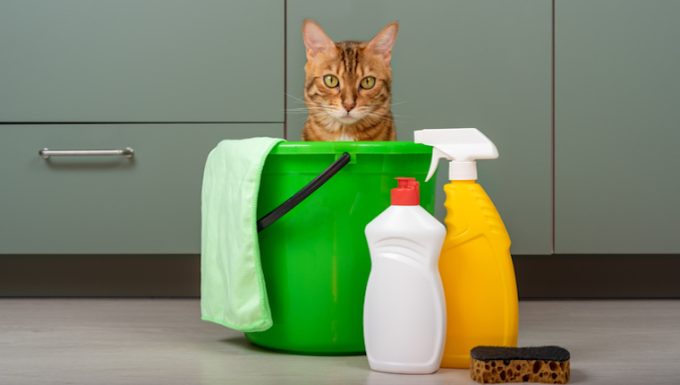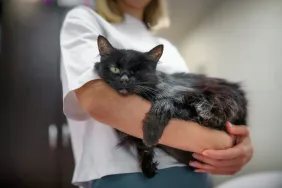Ethanol poisoning in cats happens when a cat is exposed to ethanol. Technically, this can happen either orally or through a cat’s skin.
Generally, ethanol products can be found around the house. For example, paint, drinks, and disinfectants often contain ethanol. Additionally, some foods like dough also contain ethanol.
Thankfully, early treatment can really help a cat recover from the condition.
Technically, the condition is also known as ethanol toxicosis in cats.
If you see the signs of the condition in your cat, then get to a veterinarian for a proper diagnosis and treatment.
Here’s what you should know about the symptoms, causes, and treatments for the condition.
Symptoms of Ethanol Poisoning in Cats
The condition produces a range of symptoms. For instance, some of the most common symptoms include:
- Vomiting
- Depression
- Dehydration
- Involuntary peeing
- Involuntary pooping
- Ataxia
- Acting lethargic
Generally, symptoms of the condition affect a cat’s nervous system. Additionally, symptoms can often be seen around 15-30 minutes after exposure to the poison.
Causes of Ethanol Poisoning in Cats

The cause of the condition is exposure to ethanol. For example, some of the ways this can happen include:
- Disinfectants
- Antifreeze
- Perfumes
- Hand sanitizer
- Mouthwash
- Dough (including pizza dough)
- Spoiled apples
- Alcoholic drinks
- Paint
- Medications
Treatments for Ethanol Poisoning in Cats
Firstly, your vet will ask about your cat’s symptoms. Secondly, your vet will ask about any circumstances where your cat could have been exposed to ethanol.
Thirdly, a full physical examination will be carried out. Blood and urine tests will be taken. Ultimately, blood tests can confirm the condition. This is by showing how much ethanol is in the bloodstream.
Generally, treatment depends on the severity of the condition. For example, intravenous fluids are often used. Additionally, medication can help nervous system issues.
As always, if your vet prescribes your cat any medicine, make sure to stick to the correct dose and frequency instructions. Also, complete the full course of medicine.
Ultimately, prevention is better than cure with this condition. So make sure your cat does not have access to potentially toxic products around the house.
Finally, you can also read more about poisoning in cats in general in our article here.
Have you ever cared for a cat who suffered from this condition? How did your vet help your kitty recover? Let us know in the comments section below.









